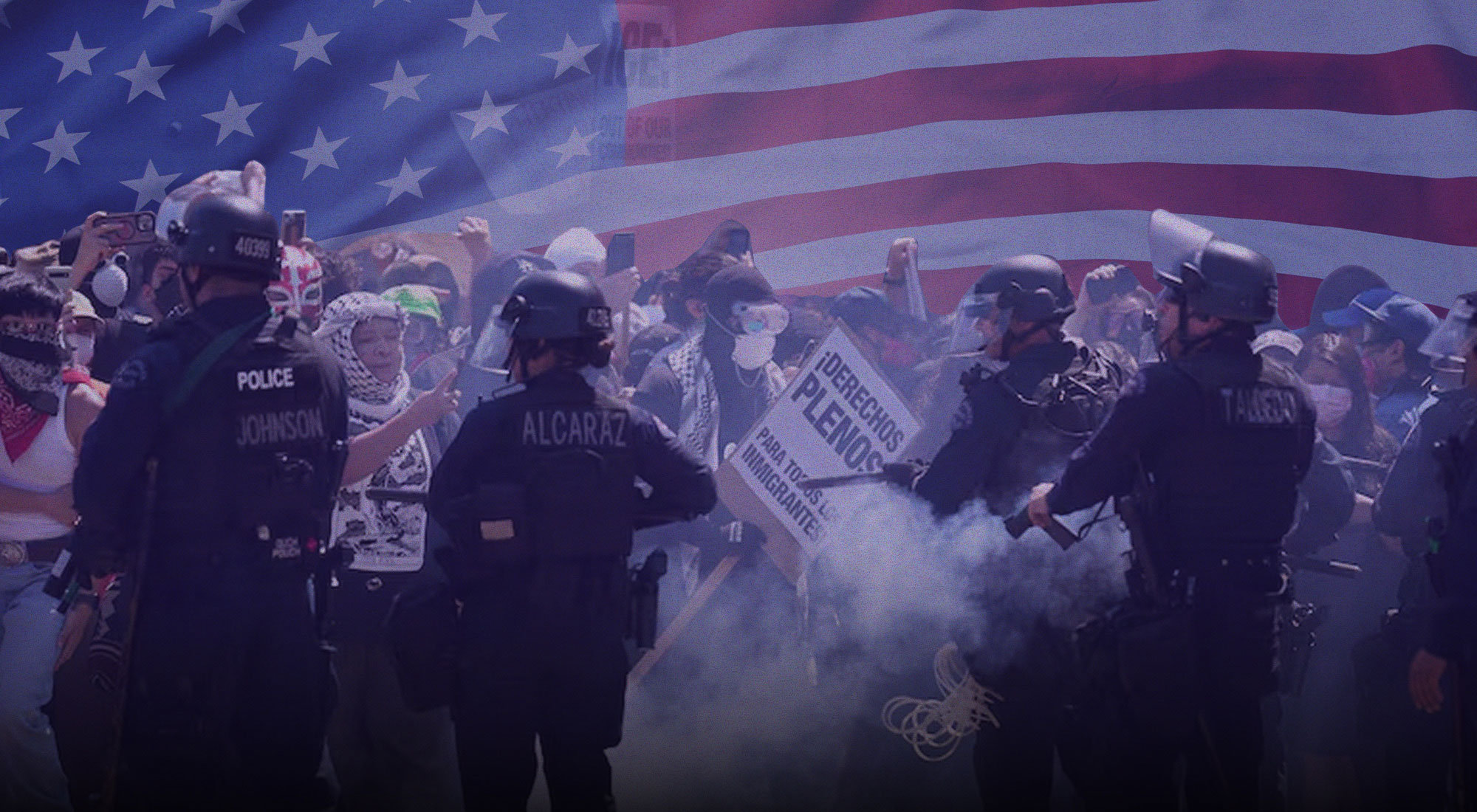
Snapshots
Los Angeles Between Street Protests and the Federal Government’s Approach
09 Jun 2025
The city of Los Angeles, the largest and most important city in the state of California, is currently witnessing a wave of protests sparked by the wide-scale deportation campaigns carried out by U.S. Immigration and Customs Enforcement (ICE), a federal agency, against undocumented immigrants across various states, including California. The situation escalated significantly following the arrest of more than 100 individuals in the Fashion District and Home Depot stores, which led to confrontations involving tear gas and stun grenades. This was followed by former President Trump’s decision to deploy 2,000 National Guard troops, with U.S. Secretary of Defense Pete Hegseth hinting at the possible deployment of Marine Corps units should the violence continue.
It is noteworthy that this development has transcended the issue of immigration alone. It is now taking a broader direction due to the many issues arising in its wake, which can be summarized as follows: the citizens’ trust in local governments, the constitutional debate over the division of powers between state and federal governments, the general Democratic-Republican divide, and the growing defiance of non-Trump-voting states against upcoming federal policies.
As for public trust, recent events have revealed two dimensions—security and political. On the security front, California’s state government has failed to control the situation, especially as widespread looting and vandalism broke out. If the unrest continues, it could have serious repercussions for the state’s economy, which reached around $4.10 trillion in 2024. Politically, both Mayor Karen Bass and Democratic Governor Gavin Newsom have gained considerable popularity for their opposition to Trump and their vocal criticism of his administration. It is important to note that the immigration crackdown was initiated by the federal government, not the local authorities. Undocumented immigrants in California are afforded several protections under state law, including:
- Free education
- Emergency medical care
- Housing assistance
- A prohibition on local police from inquiring about immigration status or assisting ICE with deportations
- The right to legal counsel upon arrest
These are legally enshrined rights for undocumented immigrants in California, making it a so-called “sanctuary state.” However, the conflict between state and federal policies has created a constitutional crisis, particularly in implementing federal policies that contradict local laws. Furthermore, the use of the National Guard has sparked debate over its constitutionality, given that its primary mandate is to defend the country from external threats—not intervene in domestic incidents typically under the jurisdiction of local police.
Regarding the Republican and Democratic parties, Republican leaders have leveraged the events to reinforce the narrative of “lawlessness” in liberal cities, calling for increased police support and tighter security measures—moves that have bolstered their conservative base. Meanwhile, the Democratic Party seized the opportunity to criticize Trump’s policies broadly, especially the use of force, with Democrats describing the operations as violations of immigrant rights and the Constitution. They called for peaceful resistance against mass deportation policies and federal interference in local affairs. These statements, along with ongoing footage of the protests, are likely to strengthen Democratic voter turnout in the upcoming midterm elections.
As for Donald Trump, the events have further energized his base, which supports strict immigration policies. However, he has also faced criticism for the excessive use of force against protesters. Democratic-led states, which did not vote for Trump in the 2024 election—approximately 20 states including California, New York, Illinois, Washington, Massachusetts, Connecticut, Vermont, New Jersey, Maryland, Delaware, Hawaii, New Hampshire, and others—are likely to adopt a more confrontational stance against the federal government on policies that conflict with their internal laws. It is also likely that these states will strengthen the concept of sanctuary cities to protect undocumented immigrants locally, as a reaffirmation of American values and in solidarity with the local government of California.


